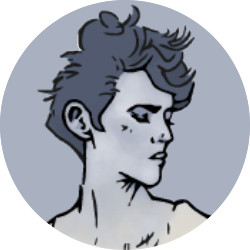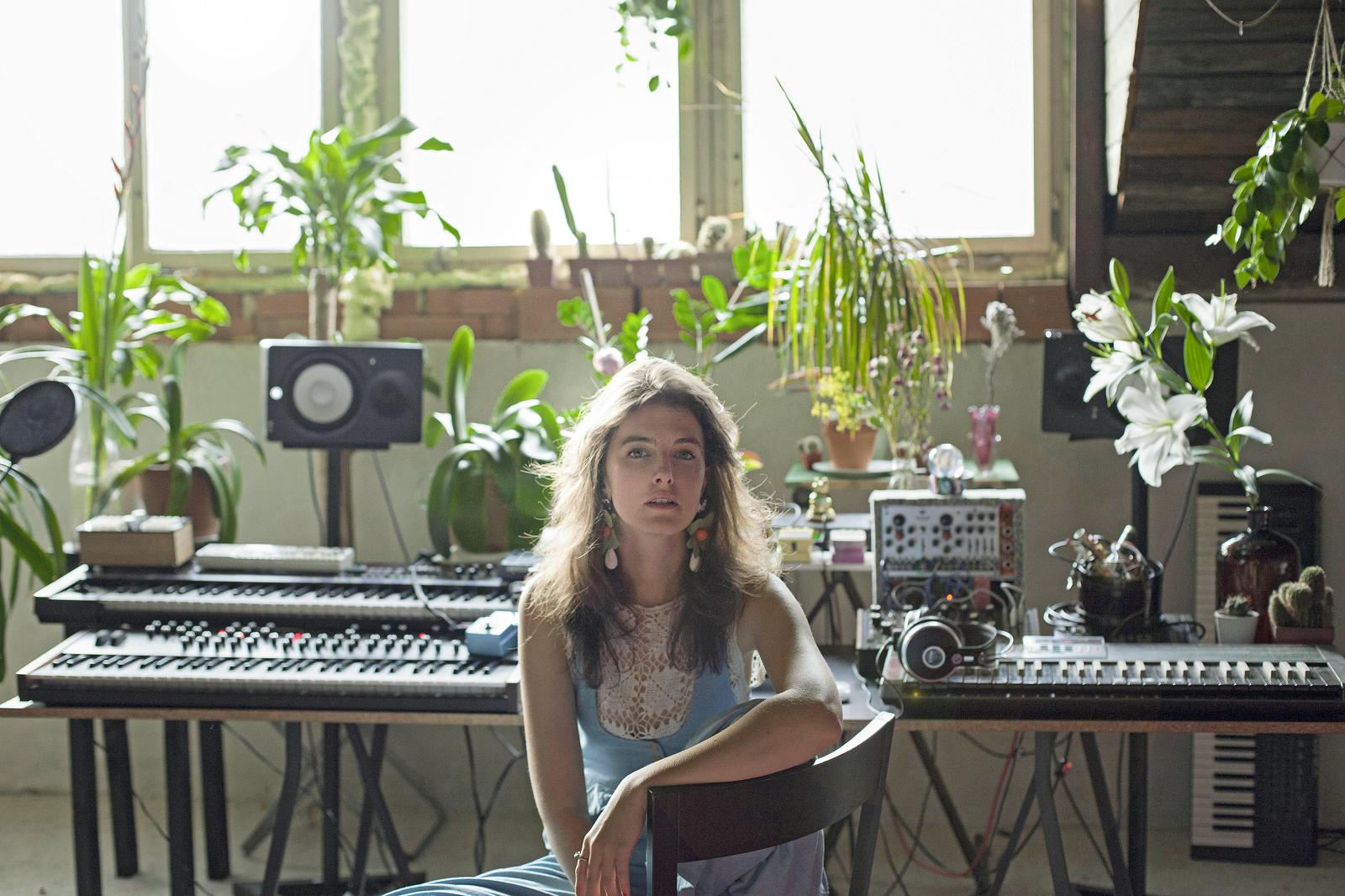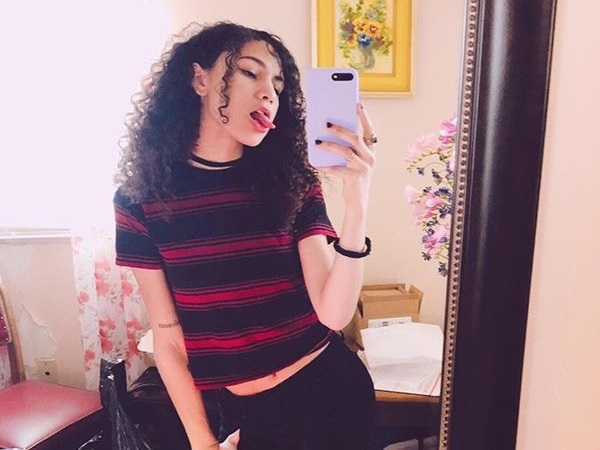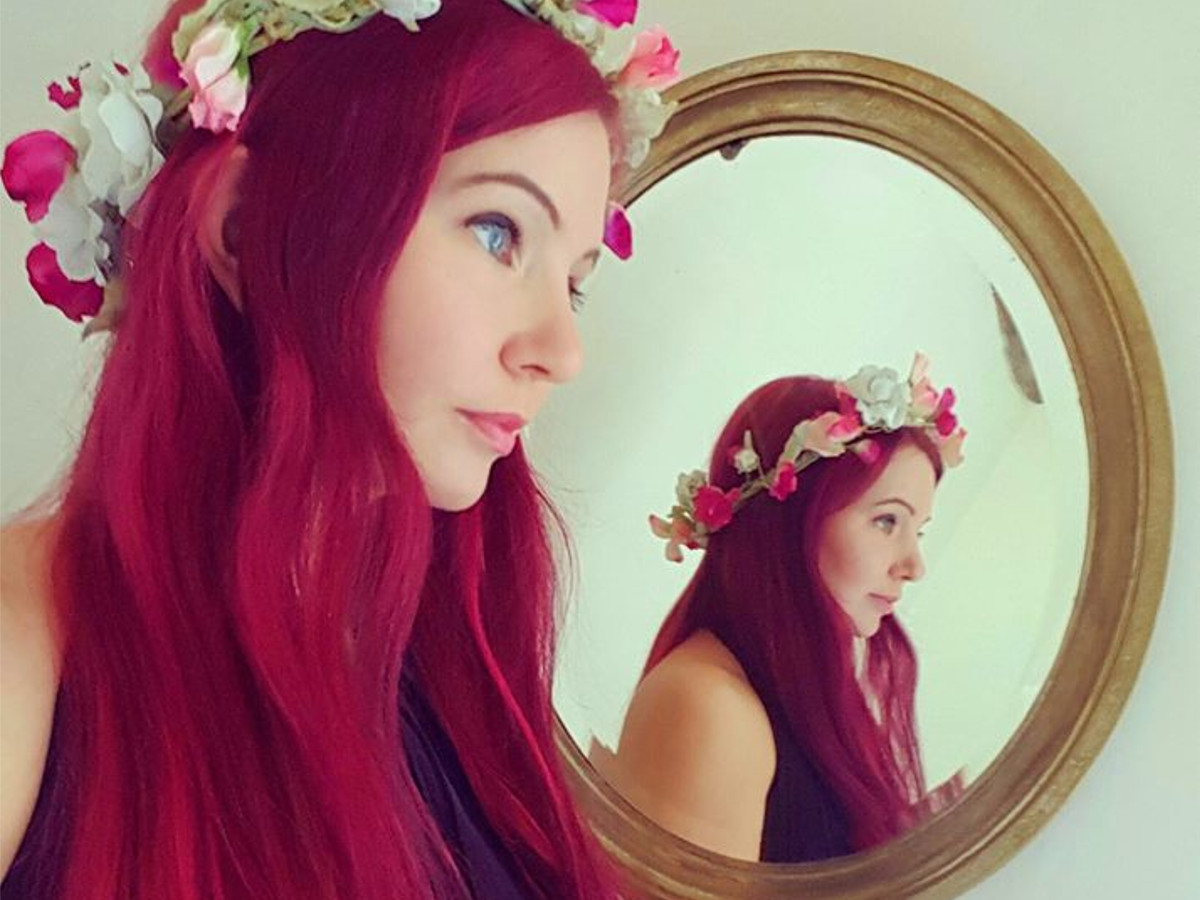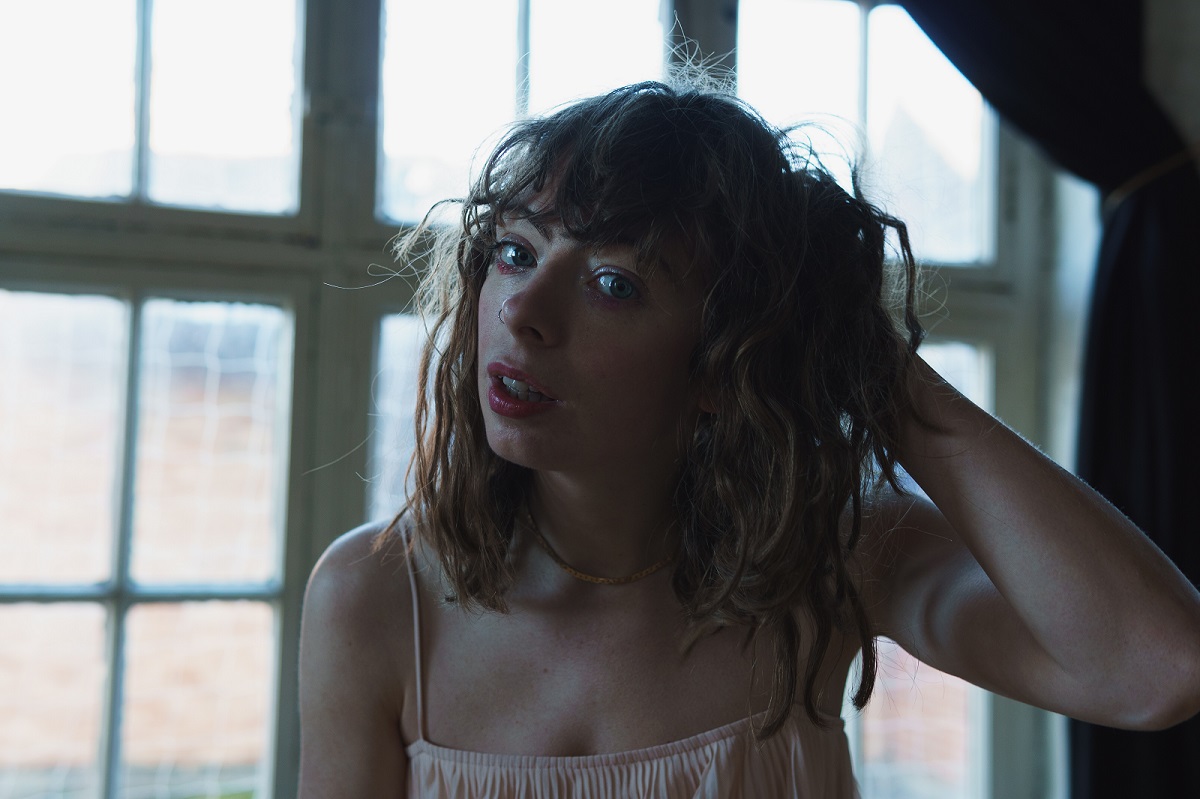 Photo credit: Stefan Jakubowski
Photo credit: Stefan Jakubowski
The Interview
What is your process, and in what ways did it differ for the new album?
Elsa: My process has changed a lot over time — it’s always changing — but generally, for my electronic stuff, I start by making a load of sounds then taking them apart. Or I take a recording of something else that I’ve already made — it’s often guitar or synth — and basically resample and turn it into something that sounds more warped and atmospheric.
For this particular album, I focused a lot on guitar loops, or just building up layers of loops that have cross-rhythms and building up the track from there. Do you know Quilt Jams, the EP I released last June?
You release so many things! How am I supposed to remember the names of all of them?
Elsa: [laughs] That’s supposed to be the other side of the coin of Citrus Paradisi. It’s mainly made up of guitar loops and vocal harmonies. A lot of the tracks that were going to be on that, I saved for this one, because I thought I’d keep that one really minimal and let loose on a load of the other ones.
Do you prefer when you keep things minimal, or when you let loose?
Elsa: I think I mostly enjoy letting loose, or not trying to find something specific, but just seeing what I end up with. In some ways, I like things coming out of nowhere — something unplanned, but awesome. It’s like a search — I keep making different sounds and playing with them until I find something that’s got a good catch.
You mentioned that you’d generally be using guitar or synths — which of those do you generally prefer to use?
Elsa: Probably guitar, because that’s my main instrument, and I find it quite easy to improvise stuff.
There’s a lot more stuff that I’m planning on trying out with synths, because it’s such a huge world of possibilities — there are so many different sounds you can make, and there are so many different things you can do to those sounds. It’s endless. With guitar, you’ve always got six strings, and it’s always made of the same material, but still it turns out there are a lot of different things you can create. And I think it’s because I just like making chords. I’ve always made up chords, ever since I started playing guitar — that’s just something I’ve always enjoyed doing. I can still have that very natural, organic way of playing, and then translate that into electronic music — it creates something quite interesting. The chords are a big part of the music creation for me.
When you started to learn guitar, did you envisage you’d be making the kind of music you are now?
Elsa: No. [laughs] Not at all, because when I started, I didn’t really listen to electronic music — as in, experimental or EDM type things. If anything, it was nineties pop, which was effectively electronic music, but I didn’t really see it as that at the time. I would never have envisaged being where I am today.
Is there any part of the music creation process that you’re not so keen on?
Elsa: I think when you’ve finished the track, and you keep going over it, fine-combing it like a million times until there are no problems or frequencies that are a bit too harsh. I’ve liked learning to mix and getting better at mixing, and since I started off mixing it myself, I just thought I’d keep going until I’m good at it. But that probably is the most arduous part of the process.
Do you find it easy to stop and just be like, “It’s finished”?
Elsa: Yeah, I think so. Although, this album has been the one where I’ve stopped about five times. [laughs]
Do you ever find the vast possibilities that are open to you as an electronic and experimental artist to be a little overwhelming?
Elsa: Yeah, it is sometimes quite overwhelming. That’s when you’re just thinking about it, or listening to music that inspires you to make something new. If you spend too long thinking about it, and not doing it, then it’s overwhelming, because it’s like, “Which idea should I pursue?” It’s less overwhelming if you just pick something up and make something.
How long do your ideas tend to take to develop then?
Elsa: Very fast, actually. It’s quite spontaneous at the start, usually, and then I just keep following my imagination. I have to do that quite quickly so that I don’t lose the vibe or momentum. I suppose that’s why they come out quickly: because the ideas come quickly, and I have to get the sounds and the track from one place to another to finish the session.
When you started work on the new album, was there anything specific that you wanted to implement?
Elsa: I did decide to keep in mind the ways I could play it live. And I slightly wanted to make it more mathy in the way I was using the guitar loops. Aside from that, it was literally just things that I discovered I could do really quickly, and I just kept doing them. Like the vocal harmonies: using them rhythmically.
You mention thinking about how you would play it live, which is something I was planning to ask about. You do actually take that into consideration when building a track then?
Elsa: Yeah, I do now. When I started making electronic music, I didn’t really think about how I was gonna play it live — when it came to having to do live sets, it was like, “How the hell am I gonna recreate this?” [laughs] Basically, it’s impossible, so I have to think about ways I can string it all together in a way that’s fun to do and also fun to watch.
Do you enjoy playing live?
Elsa: Yeah, I do. Obviously, it does depend on the venue and the audience – – they can really influence the experience — but, generally, I’ve always enjoyed it.
Okay, so returning to the album: How do you feel it compares to the mountain of stuff you’ve released over the last couple of years?
Elsa: I’d say it’s more polished, maybe, because I’m more aware of what I’m doing. Having done those first three — that was like getting my initial ideas out — I could look back on them and hear what I could improve. My ear has become more finely tuned. Also, I wanted to make something slightly faster and more high energy.
Is there a particular mood you tend to be in when you do your best work or are at your most creative?
Elsa: I don’t think there’s a particular mood — it’s just the mood of the day. [laughs] As long as you’re inside it, and you’re able to feel it, then it’s gonna have some sort of authentic outcome, I find.
And you are incredibly prolific… How do you manage that? Is it purely just a result of going with the feeling of the day?
Elsa: I would say so. I mean, I was literally thinking about this yesterday: Why doesn’t everyone else end up making the same amount of stuff that I do? And I think maybe people do make a lot of stuff, but they don’t release all of it. I do. [laughs] No, I don’t release all of it. I’m pretty sure I’ve been prolific from the start, and there’s no real reason that I know of for it. Maybe I just make things quickly. I feel like I have just as much time as everyone else does, so I don’t understand really.
I assume you must be good at just getting on with things as opposed to staring off into the distance for hours at a time.
Elsa: [laughs] Yeah, actually that’s true. I think a lot of it is to do with finishing things that you’ve started. I think a lot of people struggle with that, or don’t feel satisfied with something they’re making and never finish it — a lot of people talk about not finishing stuff. I have quite a strong sense of needing to finish something once I’ve started it. I’ve always got a lot of satisfaction out of finishing a song — since being a teenager, that’s one of my favourite feelings. It makes you feel slightly richer.
When you do need to look for inspiration, where do you tend to find it?
Elsa: I can’t really say for sure. I guess I just find inspiration in sounds and chords, and the emotions that they make me feel. It’s usually just by making a sound, but I guess everything in everyday life; everything that I see, it all fits into the subconscious, and I think as long as you can tap into that, you can find something to write about.
Do you feel like you perhaps see the world slightly differently from a lot of other people? Or are maybe just able to better process what you see and hear?
Elsa: It might be that: it might be to do with processing. Spending most of my growing-up years writing songs, partly because I needed to. Often, I was really unsociable — I didn’t talk very much, and I preferred to write songs. It was quite healing for me. I’ve sort of got used to having that output and needing that creative side. It’s just literally how I live now, I suppose — it’s an essential part of life for me.
So, how do you prepare yourself for a major release?
Elsa: That’s something I’m still learning. It’s quite hard, especially finding promotion and stuff. It can be quite soul-destroying trying to attack that on your own, since most people don’t reply when it comes to blogs and stuff. It always helps to have people working with you for that. Certain magazines and blogs have a really focused genre type, and my music doesn’t quite fit into any of them, which makes it particularly hard. But I’m proud of the fact that it doesn’t quite fit into a lot of categories.
I kinda just have to calm myself down and try to instil a sense of confidence. No matter what happens, I know it’s good, and I know that people will enjoy listening to it. My audience grows with every release, so there are always gonna be people who are happy to hear the new stuff. I think those are the main things. To just not get disheartened, and not care who does and doesn’t reply, or what I get and what I don’t.
Are you still able to see it primarily as a creative project, as opposed to work?
Elsa: It’s always evolving. I see it as both, now. The best part of it is when I’m just making something fresh and not thinking too much about what it’s gonna be or who it’s gonna be for. I have to have different hats. The business side always comes later, but also it feeds into the performing side — I always like to have something really current to perform when I play live sets.
Now we’ve got access to so many stats, especially if you self release, it really takes the fun out of releasing albums. Suddenly, it’s like, “Numbers!” Which may or may not mean something is going well or not. It’s sometimes too much.
Is there anything that irritates or frustrates you about the type of music that you make from a purely creative perspective?
Elsa: Maybe just the looping and the repetition. A lot of my music is built on loops, and I’m starting to feel like I’ve done the looping to death. It’ll probably become more experimental. I guess all music is based on something repeating, and then it changes to something else repeating. I’d kinda like to break from that a little bit, and do something wildly experimental. [laughs]
Anything in particular?
Elsa: Something that doesn’t repeat once in a song. But I can’t promise I’ll end up making that anytime soon.
What is the most important element of an Elsa Hewitt track? Currently. Before it all turns wildly experimental…
Elsa: [laughs] Usually it ends up being the chords, the rhythm and the structure of the track.
Is there an element of your craft that you’d like to improve upon?
Elsa: I think, mainly, making it somehow louder. [laughs] My music always comes out really quiet. I tried to improve on that in the last album. I think it’s a lot to do with the sounds that I use: sometimes they’re quite lo-fi. I do like the lo-fi recordings — they have a certain texture to them — but if I made everything digitally, it would all sound much louder and crisper, and it’s something I’m thinking about doing more.
Obviously, you utilise vocals in your work, but their presence seems somewhat restrained. Is this an intentional thing, or does it just depend entirely on what a track needs to feel complete?
Elsa: Yeah, I think it depends on the track, definitely. I did spend more time thinking about the actual music rather than the words. I’d already used my voice quite a lot to actually make the music. I could have spent longer making more words on the album, but I didn’t really feel inclined.
Do you enjoy that part of it?
Elsa: I do enjoy it, but I think it’s the part that takes the longest and the most concentration for me. I can make music and melodies in an instant, and it’s totally easy, whereas, when it comes to lyrics, I really want them to be just right. It’s really easy to write something and feel embarrassed about it. I have to spend quite a while just sitting there thinking about what the right words are, and whether I know what I want to say or not. It takes a while, and it takes a different part of my brain.
You’ve already released a couple of videos ahead of the album’s release, and the cover art for it looks wicked. How important is the visual element of what you do?
Elsa: It’s pretty important. I think it definitely needs to suit the music, and it’s ended up having a certain style because I’ve been making it myself, apart from doing photos with some photographers, and the DUM SPIRO SPERO cover, which was made by my friend Joy Simpson.
I guess it becomes increasingly important. The first time I tried to do the artwork, it was really bad. It’s always been a fun side of it — I like doing art — but when it came to releasing my albums professionally, the Future Bubblers were like, “I think you need something a bit slicker.” I just had these pink clouds with a picture of a cat on it. I had to learn that you need high-res stuff, but ultimately I’ve wanted to do it myself because then I have control over the colours — the colours have got to fit with the sounds, I think.
What do you feel that you gain from being artistically, creatively, inclined?
Elsa: A whole world of ambition and achievements. You can get a lot of really great feelings from making music that you really like. It’s quite addictive once you start making really interesting sounds and realise you can make whatever you want. It’s kind of freeing as well in that way, and comforting, because you’ve always got something you can return to: a creative practice that can take your mind off anything, heal you, and channel whatever you’re feeling into some sort of art-form. I feel pretty lucky to be able to do that.
So, to what extent would you like your creative output to define you as a person?
Elsa: … Fifty percent? [laughs] It’s always a challenge to make music as authentic as possible — to represent wherever you are in your life at that moment. I think it’s like a documentation of life.
That’s a really difficult question!
Yeah, I know… I’m sorry.
Elsa: [laughs] So, like, fifty to a hundred percent. [laughs] It is quite a big range, but it is kind of a duality: there’s your self, and then there’s your creative self, which is something else — it’s kind of like the world, through you.
Okay. so let’s finish back on the subject of the new record. Is there anything that you specifically hope to communicate to people through Citrus Paradisi?
Elsa: It’s not something I’ve thought about that much. I think the album is inspired a lot by synchronicity and faith — I’m not sure for what reason though. I guess it’s partly faith in the universe, and also in yourself — to be able to overcome things.
Has having faith in yourself — self-confidence — been an issue?
Elsa: Self-confidence has always been a slight battle, but it’s more self-esteem, I would say. I’ve always been confident in my music, but not so confident in myself, and unable to push it on people or rave about it. I can make it in complete confidence, and honestly believe that it’s good; I think I can see quite clearly how what I do is good, and how it can be improved; I have confidence in my judgement; but, sometimes, I lack confidence in the world I’m putting it into. That brings it back round to having faith: that what you’re doing is fine, and what you are is fine, and you should have confidence in it and faith that people will like it.
Which brings us nicely to my final question: Is there anything you’re especially excited for people to uncover on Citrus Paradisi?
Elsa: I think that every track on the album would probably be given a slightly different genre name — I don’t think any of them are the same genre — but they all fit together really well. There are similar sounds used in all of them, but different types of beat and that kind of thing. I think that should be interesting for people, and also the mix of propulsiveness and danceable with quite ethereal, twinkly, sleepy sounds. I think the mixture of those is kind of an interesting one.
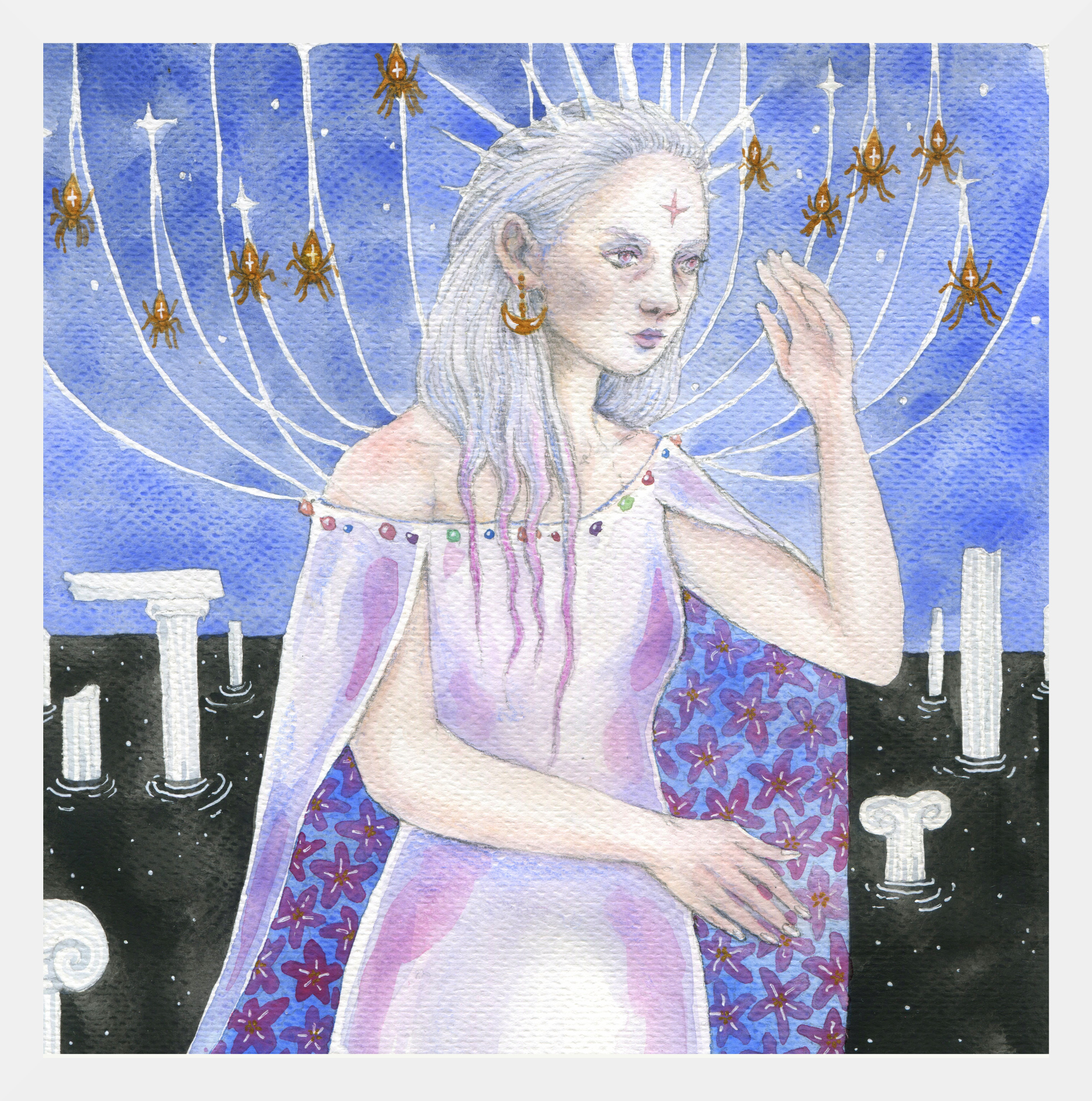 Elsa Hewitt featured onOneiric Escapism 4
Elsa Hewitt featured onOneiric Escapism 4You can stay updated with Elsa on Facebook and Instagram, and stream or purchase her music over on Bandcamp.
If you enjoyed reading this interview and happen to think we're doing something right, please consider sharing the link -- whether on social media, or just with a friend, it'd really help us out! We're also on Facebook, Instagram (@alonelyghostburning) and Twitter, so if you'd like to keep up-to-date with the publication of new content, and also provide us with a whole heap of motivation, please do give us a like or follow.
